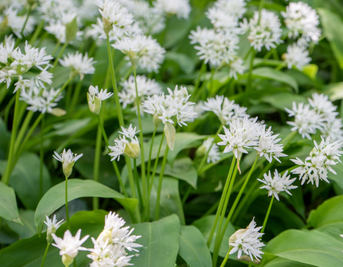Coriolus (Turkey Tail) Mushroom
Trametes versicolor

This common woodland mushroom is the most widely researched of all the medicinal mushrooms. It is the source of the major pharmaceutical drugs: PSK (Krestin) and PSP, which are licensed in Japan and China respectively for use in cancer treatment, with annual sales of several hundred million US Dollars.
Main active components– Like most mushroom polysaccharide extracts, both PSK and PSP are proteoglycans (polysaccharides with attached protein groups).
Traditional use– Coriolus is used in traditional Chinese medicine to strengthen the immune system, treat lung and urinary tract infections, tumours and liver disorders.
Health Benefits
Cancer– The Coriolus extracts PSP and PSK are routinely used alongside conventional treatment in the Far East, typically at 3g/day, with over 40 randomized controlled trials confirming benefit for a range of cancers, including: stomach cancer, colorectal cancer, lung cancer (NSCLC), oesophageal cancer, nasopharyngeal cancer, breast cancer and cervical/uterine cancer.
Reported benefits include increases in 2, 5 and 15 year survival, as well as reduced side-effects from conventional treatment1-3
● Anti-viral– Coriolus’ ability to support healthy immune function means that it is also an excellent supplement for chronic viral conditions (4), including:
● Herpes – Coriolus has been shown to inactivate Herpes Simplex Virus (HSV) in a dose-dependent manner and clinically is seen to reduce the frequency of HSV outbreaks.
● HIV – In-vitro studies show anti-HIV activity of Coriolus extracts and clinical reports indicate improvement in HIV patients’ immune status from Coriolus biomass supplementation.
● Chronic Fatigue Syndrome (CFS/ME) – Many cases of CFS are associated with high viral levels and Coriolus biomass (1.5-3g/day) has been shown to provide effective support, helping improve
● quality of life scores, lower viral levels and improve immune parameters, including increased NK cell activity (5).
● Anti-fungal – Coriolus extracts have a pronounced protective effect against lethal infection with Candida albicans in mice (6).
Nutrient Profile
The mushroom biomass we use to manufacture MycoNutri Coriolus is grown for us in the USA on sterile grain-based substrate and is optimized to maximise mycelial production.
The biomass contains the full spectrum of active metabolites from the mycelium and young fruiting body of the mushroom, including beta-glucans, other intra- and extra-cellular polysaccharides, phytosterols (including ergosterol – provitamin D2), proteoglycans, proteins, lipids and triterpenes. We then blend it with a hot-water extract containing high levels of polysaccharides to reinforce its health-promoting properties.
Directions
References
1. The use of mushroom glucans and proteoglycans in cancer treatment. Parris K. Alternative Medicine Rev. 2000:5(1).
2. Coriolus versicolor – Detailed Scientific Review. MD Anderson Cancer Center.
3. Efficacy of Yun Zhi (Coriolus versicolor) on survival in cancer patients: systematic review and meta-analysis. Eliza WL, Fai CK, Chung LP. Recent Pat Inflamm Allergy Drug Discov. 2012 Jan;6(1):78-87.
4. Medicinal value of turkey tail fungus Trametes versicolor (L.:Fr.) Pilát (Aphyllophoromycetideae). A Literature Review. Hobbs C. Int J Med Mushr 2004;6(3).
5. Coriolus. Munroe J. J Integrative Medicine. 2004;8:101-108 38. The anti-dementia effect of Lion’s Mane mushroom and its clinical application. Kawagishi H, Zhuang C, Shnidman E. Townsend Letter for Doctors and Patients, 2004.
6. Protective effects of a protein-bound polysaccharide, PSK, on Candida albicans infection in mice via tumor necrosis factor-alpha induction. Ohmura Y, Matsunaga K, Motokawa I, Sakurai K, Ando T. Int Immunopharmacol. 2001 Sep;1(9-10):1797-811.
